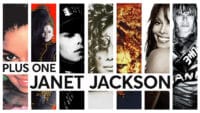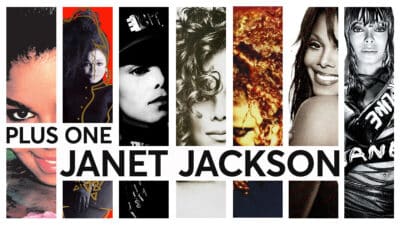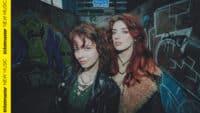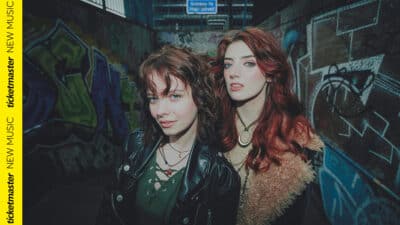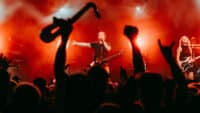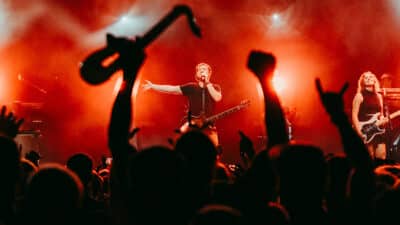Interview
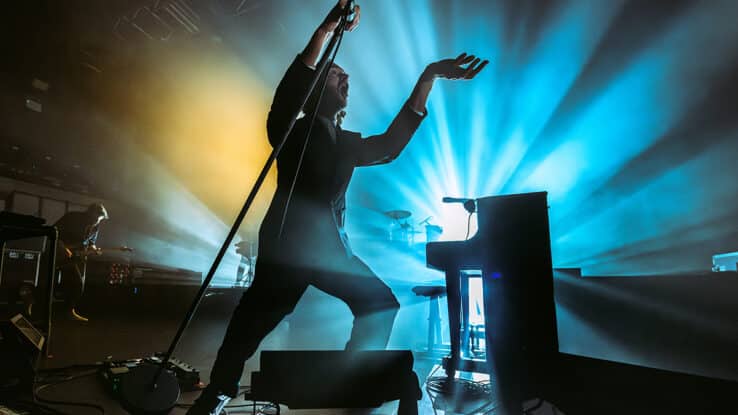
Interview
Stage Times: Editors
Ahead of shows in London and Sheffield, Tom Smith reminisces over 20 years of gigging highs and lows
Before the release of their seventh studio album, EBM, in 2022, Editors had been close to calling it a day. “We had just released a Best Of,” reflects frontman Tom Smith, “you’re forced to kind of take stock and evaluate what you’ve been doing. We’ve made three records with Chris [Urbanowicz] in the band and another three with Justin [Lockey] and Elliott [Williams]. Lockdown happened and yeah, we were sitting around thinking about the big things.”
Instead, a creative gust ushered in by new member Benjamin John Power (Blanck Mass) allowed the band to lean in closer to their darker and industrial side, galvanising a new chapter for Editors – almost two decades on from their seminal debut, The Back Room.
“It is rewarding,” says Smith, “to go out and present a new record as the focus of a show. Of course we play songs from all of our eras and all of our records, but this record is quite a striking musical statement – a long way away from the band that made ‘Bullets’ for example – and the people there are into it. On a good night, when the vibe is right, because EBM is such a hypnotic and full-on, visceral record, it really works when you’re in those sweaty venues.”
Editors hope for two more nights like these as they gear up to play the historic Leadmill in Sheffield and O2 Academy Brixton in May – the latter of which the band have performed two sets of three back-to-back nights and 11 headline shows in total over the years. “The state of the room adds to an atmosphere that I think makes it one of the best venues in the world,” says the frontman.
Ahead of these spring shows, Smith reminisces over 20 years of Editor’s gigging highs and lows.
The gig that made me want to play music
There are a couple that jump to mind, but I got to go see R.E.M. in 1995 on the Monster tour, which was at Milton Keynes Bowl. I was 14 and around that age, Britpop was becoming a thing. I think Oasis was actually one of the support bands on that tour. And seeing Liam Gallagher, or in this case Michael Stipe, do his thing was the moment I kind of thought, sh*t, this is what I want to do.
I’d been to concerts before with my parents, but it was artists like Chris Rea, Or Wet Wet Wet. So as much as I liked the experience of being at a concert as a 12 or 13-year old, seeing R.E.M. here was just otherworldly. They were like beings from another planet, superhuman. Also the scale of one of those type of shows was overwhelming as well. When people ask you who is your favourite band, sometimes it depends on what side of the bed you get out of. There’s a list of a few, but with R.E.M. – that period from Murmur through to Monster, maybe New Adventures In Hi-Fi – I can’t think of a band that have made so many great albums in that period of time. They’re my life-changing band, I think.
We’re quite a musical family and there was always music in the house growing up, but I hadn’t started playing guitar until around that time. It wasn’t long after that I was strumming chords and trying to write songs as a sad teenager on my own in my bedroom. Bands such as Radiohead, at the same time, were kind of a shining light in the direction that I wanted to go. In terms of finding my voice, that wasn’t until quite a lot later. I met the rest of the band at university, we were studying a music tech course, so I was a bit older. But even then, I loved writing songs and I wanted to be in a band. I became the singer by default, not really because of wanting to be a singer or frontman, you know… I’m still evolving with that side of things.
The first
I think it would have been the new band nights they had at The Flapper & Firkin, and the Jug Of Ale, in Birmingham. At the Jug Of Ale on Tuesday or Wednesday nights they did three band bills, it was three quid, a pound a pint. I remember the “scene”, for lack of a better word. Playing with bands coming from all around the midlands; playing those shows was really cool. There were loads of really great bands and loads of friends, it was a really exciting time. Our a very first proper gig as a band prior to this was upstairs at The Surgery in Stafford. Ed [Lay] wasn’t in the band at that point, but he was in the audience and we played Happy Birthday to him. So we weren’t taking things quite as seriously as we are now.
You’d finish one tour and then the next one would start almost immediately, and it would always be one rung up the ladder. Going back to when I was falling in love with bands like R.E.M. as a 14-year-old, I’d started to buy the NME and I remember those live ads in the back; always scouring over these little posters for the different bands playing all over the country and seeing the names of those venues. All of a sudden, we were launching our own tours and they came really thick and fast. Then it wasn’t long till we started going slightly further afield to Europe as well.
In the very early days, because we were based in Birmingham, we’d often come home after the show, because it was cheaper. But it was just f*cking exciting, man. When things started to get played on the radio with ‘Bullets’, ‘Munich’ and ‘Blood’, each one got a bit more airplay, and different people started to talk and write about us. You’d notice that obviously the rooms are getting bigger, but also people would be singing along and you’d get that recognition when you started playing whichever song. I remember King Tut’s in Glasgow was a memorable one. I remember thinking something’s stirring, something’s happening, something’s moving – and people are being affected by our songs in a way that you dreamt about, but you don’t know what it’s like until you see people there emotionally connecting with the tunes as well. It’s powerful, man.
The smallest
On the very first ‘Bullets’ tour, really early, those shows were put on sale before ‘Bullets’ was on the radio. I’ve got the poster in a frame in my studio. I don’t have many discs or posters around but that one of the ones that I like having around. On that tour was The Portland Arms in Cambridge, which really was just a tiny backroom in a pub. It’s really noticeably small – there’s a stage which you can barely fit on. Everyone was rammed in and it was just super intense. I remember it being a summer’s evening in Cambridge, obviously a very pleasant place to be and lots of students about, and it felt like a dream, really.
We’re obviously quite serious, but we probably took ourselves too seriously. The music was very serious, and it was beautiful because of it. But I remember at that show as the last note finished on the last song, which was probably something like ‘Fingers In The Factories’ or ‘Open Your Arms’ at that time, our sound engineer cranked S’Express really stupidly loud. It really confused the audience, and we just went off backstage and laughed and fell about because it just felt so absurd.
The best
Obviously there are a few that jump to mind, but I think I’d go back to Glastonbury in 2007, which was just around the time of our second album – I think it was gonna get released on the Monday after that weekend. We had the slot on The Other Stage where the sun goes down. As with Glastonbury, a lot of it goes on television, so it felt like the band were at the cusp of kind of crossing over to some kind of mainstream acceptance, or some kind of cultural relevance. We came off stage and it just felt like people had noticed it, you know, I mean?
The sun had gone down, we’d had that kind of moment where we were playing these songs from that grander second record, and it all fit perfectly. It just felt like magic. It sounds stupid, but it felt like the world noticed. In our world, it felt really significant. The album came out and went to No.1 days later.
On the first album, the stages got bigger in the festival slots. We were playing on the big stages in the daytime in the UK and in Europe as well, and it always just felt so f*cking huge and so hard and I always felt such a disconnect with with the crowd and the songs as well. It felt so far away from The Portland Arms. It felt like the songs, on some level, just didn’t belong. But then with that second record, and with that Glastonbury performance, you’re two years down the line and you’re slightly more comfortable in yourself and in your skin and also as a performer, and it just felt like we deserved to be there. It didn’t feel like a struggle anymore.
The biggest
We had a similar moment a bit further on in our career, which is probably the biggest show we’ve done. After our third record, we had a hard time making our fourth album and it led to us parting ways with Chris the guitarist, and it was a really dark chapter and not a period that I look back on fondly, of course. But we made the decision to go on without Chris and in doing that two new guys joined the band, Justin and Elliot, who have obviously been part of the band now for a long time. We had this record that we ended up making with those guys and off the back of trying to make it, we were getting somewhere with the songs with this new line-up and a big festival in Belgium called Rock Werchter asked us to headline their main stage in 2012.
Coming off the back of such an uncertain and troubled time, we agreed to do the show, even with two new guys. And it was huge. It was 80,000 people. It’s one of the biggest festivals in Europe, that was next level, even from the Glastonbury show. So for us to go through that in this kind of mark 2.0 of the band, and for me, Russell and Ed to feel like we can still do it… because there were obviously times when we thought this isn’t going to work anymore. Maybe this was just the point where we say, you know, it’s been a good run. It was about as full-on a baptism as you can have for those two new guys. And it was just… yeah. It gives me goosebumps thinking about it now. 80,000 people… You know, it was seeing that type of show when I was 14, with REM. The scale of it was unimaginable.
The worst
The worst is kind of boring, because we’ve been doing it for so long now that when we’re having a gig that’s perhaps not as fun, you crack on, get your heads down, do the gig and then, and then f*ck off, basically. You can get into that mindset and do your thing. But when things start to go wrong technically, it can get pretty heated and different. We did a London show a few years ago and there was an ongoing problem with the PA that was producing white noise as we were playing. It didn’t stop and it completely ruined the whole evening. You’ve got 5000 people there to see you and every song is tarnished and spoiled by this boring technical mishap that can’t get solved during the show. That one hurt, because I’m not the best at communicating on stage anyway, and if I had to describe to people why we’re sorry, people don’t care, why should they care? It was just awful.
The weirdest
Weird is pretty good. In some parts of Europe, over the years, we’ve developed a kind of goth audience… So there’s some festivals in Germany that we’ve played that are just entirely goth festivals. There’s one that we did called Amphi, I think it’s in Cologne, if my memory serves me. There are some corners of goth music that obviously resonate, like The Cure or some parts of Depeche, but there’s also a whole world that has not been my scene. I looked at the line-up for this festival that we were playing and didn’t know anybody at all. You turn up at the festival and literally every single person is wearing black but not only that, it’s like some kind of Tim Burton film set. So many people are dressed up in this kind of gothic, morbid imagery, all Halloween-esque. It’s kind of amazing. Literally not one person was there in anything other than a black T-shirt. It’s nice to feel like you’re playing to different people.
So we were doing our show and it was going you know surprisingly well. The audiences at goth festivals are quite serious – they don’t lose their sh*t in a way that perhaps you might expect. They’re proper music fans but they don’t mosh, they just feel quite static. They stand there and watch and then clap like crazy when you finish. Maybe because they don’t want to muck up their fancy dress. Anyway, so we’re doing our show, and during ‘Munich’ some guy gets on the stage, which doesn’t happen to us very often. He got on stage and he had one of those wooden hobbyhorses, like one of those things you run around with a horse’s head and a wheel between the legs. Whatever, but he was also naked apart from a pink thong. He must have been the only dude not wearing black. He was riding his little horse around the stage getting very excited as we’re playing ‘Munich’. That was definitely pretty weird. It was pretty memorable too.
Editors play Sheffield’s Leadmill and London’s O2 Academy Brixton on 1 & 2 May. Find tickets here.
Photo by Katja Ogrin/Redferns




